
May 21, 2016 | Focolare Worldwide, Senza categoria
 “Although the challenges are many that the Caribbean country has before it, it seemed to me that the Economy of Communion (EoC) was just made for Cuba” said United States EoC business owner John Mundell while speaking at the conclusion of an event on April 29, 2016 in Havana. There were about thirty people including representatives of local cuenta propismo (self employment) training groups, members of discussion teams examining new socio-economic proposals, entrepreneurs, accountants, as well as people with a general interest in the topic. In addition to the aforementioned business owner from Indianapolis and member of the EoC International Commission, there were also representatives from Italy: Gaetano Giunta and Steni di Piazza from the MECC (Microcredito per L’Economia civile e di comunione) , Francesco Tortorella and Francesco Marini of the Projects Sector of Action for a United World (AMU). In his opening address, Apostolic Nuncio, Archbishop Giorgio Lingua recalled the invitation Pope Francis extended to the youth during his visit to the island in September 2015: “Live ‘social friendship’ so that you’ll be able to discern together how to implement it and help others to live for the common good.” “Very appropriate words,” thought Paola Montetta who was one of the organizers of the event, “given that we had Christians and non-believers who had Socialist training, and all of us moved by the desire to live a lifestyle of communion.” After an overview of the Civil Economy, the Economy of Communion (EoC) was presented that included a description of the novelties and challenges it poses, placing the human person at the centre of economic action, particularly the vulnerable and the needy. The experiences of the entrepreneurs from the EoC showed that “despite the pressures, it is possible to pursue a lifestyle of communion in business, respecting the productivity and the environment, while, at the same time, you become generators of reciprocity and communion inside and outside the business.”
“Although the challenges are many that the Caribbean country has before it, it seemed to me that the Economy of Communion (EoC) was just made for Cuba” said United States EoC business owner John Mundell while speaking at the conclusion of an event on April 29, 2016 in Havana. There were about thirty people including representatives of local cuenta propismo (self employment) training groups, members of discussion teams examining new socio-economic proposals, entrepreneurs, accountants, as well as people with a general interest in the topic. In addition to the aforementioned business owner from Indianapolis and member of the EoC International Commission, there were also representatives from Italy: Gaetano Giunta and Steni di Piazza from the MECC (Microcredito per L’Economia civile e di comunione) , Francesco Tortorella and Francesco Marini of the Projects Sector of Action for a United World (AMU). In his opening address, Apostolic Nuncio, Archbishop Giorgio Lingua recalled the invitation Pope Francis extended to the youth during his visit to the island in September 2015: “Live ‘social friendship’ so that you’ll be able to discern together how to implement it and help others to live for the common good.” “Very appropriate words,” thought Paola Montetta who was one of the organizers of the event, “given that we had Christians and non-believers who had Socialist training, and all of us moved by the desire to live a lifestyle of communion.” After an overview of the Civil Economy, the Economy of Communion (EoC) was presented that included a description of the novelties and challenges it poses, placing the human person at the centre of economic action, particularly the vulnerable and the needy. The experiences of the entrepreneurs from the EoC showed that “despite the pressures, it is possible to pursue a lifestyle of communion in business, respecting the productivity and the environment, while, at the same time, you become generators of reciprocity and communion inside and outside the business.”  These are certainly important topics especially in view of promoting possible alternatives to the offensive from capitalism, particularly given the current economic situation in Cuba. The experiences of MECC and AMU in the field of social projects which it promotes around the world, have opened new horizons that make room for important and fruitful dialogue. “The meeting turned out as was hoped: as a multiplier of reciprocity and experiences of communion and as an incubator for ideas and proposals,” said Paolo Monetta. And John Mundell: “During the return trip I was on a plane with a lot of American business people, individually invited for “People To People Travel” – all of them intent on discussing business opportunities that are opening in Cuba. If I’m on a plane filled with American capitalists, I said to myself, then this time the EoC is moving at just the right moment!” The next appointment will be November 2016: “With the goal of involving those who want to create synergies with us in favor of communion and in view of a more just and united world.”
These are certainly important topics especially in view of promoting possible alternatives to the offensive from capitalism, particularly given the current economic situation in Cuba. The experiences of MECC and AMU in the field of social projects which it promotes around the world, have opened new horizons that make room for important and fruitful dialogue. “The meeting turned out as was hoped: as a multiplier of reciprocity and experiences of communion and as an incubator for ideas and proposals,” said Paolo Monetta. And John Mundell: “During the return trip I was on a plane with a lot of American business people, individually invited for “People To People Travel” – all of them intent on discussing business opportunities that are opening in Cuba. If I’m on a plane filled with American capitalists, I said to myself, then this time the EoC is moving at just the right moment!” The next appointment will be November 2016: “With the goal of involving those who want to create synergies with us in favor of communion and in view of a more just and united world.”
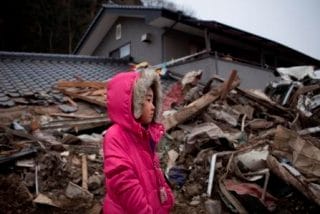
Apr 26, 2016 | Focolare Worldwide, Senza categoria
Isabel shares her state of mind following the earthquake that hit her country, Ecuador, on April 16. The physical structures that fell – bridges, buildings, houses – invite us to feel the earthquake in our own souls as well, and to ask ourselves whether we really are peace builders? I’ve realised that suffering helps to unite us. I’d like to challenge everyone during in these difficult days, to convert and become bearers of hope and optimism, that we help one another to keep faith alive.” There are 587 confirmed dead, and the wounded are more than 8 thousand, with 25 thousand displaced persons. The numbers continue to grow and it is estimated that reconstruction will cost the country billions of dollars. The Focolare Movement has begun a fundraiser for the Ecuador emergency, while they plan intervention on the ground.

Photo: United Nations

Apr 24, 2016 | Focolare Worldwide, Senza categoria

Photo: P. Gábor

Photo: Thomas Klann
Pope Francis’s words
Press releases
https://vimeo.com/164030691 See Flickr photostream by Thomas Klann 
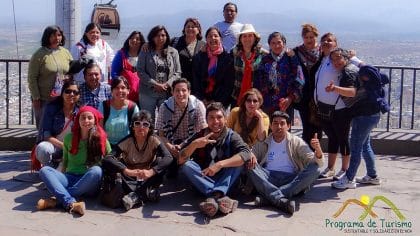
Apr 22, 2016 | Focolare Worldwide, Senza categoria
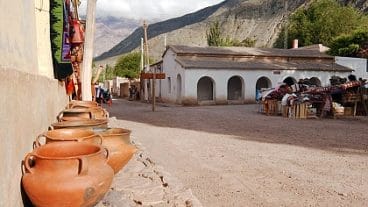 Salta: one of the more beautiful provinces of Argentina, with natural riches and ancient cultures that resisted the Spanish Conquest over 500 years ago. With the arrival of the new millennium it has been upgraded as a destination for tourists and the undisputed centre of the Northwest Region of Argentina. “The Sustainable Tourism Programme was begun in 2010 upon encouragement from the Bishops Commission for Migration and Tourism,” Paula González explains. “The Northwest of Argentina is mainly inhabited by descendants of indigenous peoples. Some live in communities and others are farmers. It demonstrates their connection to the land, both for produce and for artisanal crafts.” The important migrant waves, from Europe, the Middle East and Latin America – especially Bolivia – have created a ‘coexistence of cultures’, with a strong indigenous component that makes this a very unique region with cultural challenges.” The programme was begun in response to the lack of jobs. Only 39% of the economically active population had jobs. “We proposed working in the rural and more remote areas that were most affected,” explains the coordinator. The geography of the region contains wide valleys and rocky highlands (up to above 3000 metres). “We realized that the problem was due mainly to isolation,” continues Paula González, “which prevents them from selling their products, and in some communities there was a lack of water and energy. Those most affected were women and young people.” At that time Argentina was setting up a national tourism development plan that excluded rural communities. Then, the Catholic Church pointed to the need for more equitable and inclusive proposals. The goal was to create new tourist destinations based on agricultural and handicraft production, which are the basis of their livelihood.
Salta: one of the more beautiful provinces of Argentina, with natural riches and ancient cultures that resisted the Spanish Conquest over 500 years ago. With the arrival of the new millennium it has been upgraded as a destination for tourists and the undisputed centre of the Northwest Region of Argentina. “The Sustainable Tourism Programme was begun in 2010 upon encouragement from the Bishops Commission for Migration and Tourism,” Paula González explains. “The Northwest of Argentina is mainly inhabited by descendants of indigenous peoples. Some live in communities and others are farmers. It demonstrates their connection to the land, both for produce and for artisanal crafts.” The important migrant waves, from Europe, the Middle East and Latin America – especially Bolivia – have created a ‘coexistence of cultures’, with a strong indigenous component that makes this a very unique region with cultural challenges.” The programme was begun in response to the lack of jobs. Only 39% of the economically active population had jobs. “We proposed working in the rural and more remote areas that were most affected,” explains the coordinator. The geography of the region contains wide valleys and rocky highlands (up to above 3000 metres). “We realized that the problem was due mainly to isolation,” continues Paula González, “which prevents them from selling their products, and in some communities there was a lack of water and energy. Those most affected were women and young people.” At that time Argentina was setting up a national tourism development plan that excluded rural communities. Then, the Catholic Church pointed to the need for more equitable and inclusive proposals. The goal was to create new tourist destinations based on agricultural and handicraft production, which are the basis of their livelihood.  “The first year, we identified 30 communities and 7 key areas for development in 5 Provinces. Currently, almost 6 years later we are working in 5 areas. There are around fifty entrepreneurs linked to the ‘Network of Tourism Entrepreneurs (NOA)’. If we were to highlight anything it would be the network of organisations that have joined forces to work together in a structured way – national, provincial and local. They include universities, NGOs and businesses. They have also been closely connected to the Economy of Communion and the Movement for Unity in Politics that are key allies. Over these years,” Paula concludes, “what gave strength and effectiveness to the development of the project was the work done on the links in the chain of values and relationships that were formed between all the people involved.” We have already come a long way. There are local projects, new leaders capable of carrying things forward, and we can already foresee very satisfactory results: for example, interaction and mutual cooperation amongst different communities that are stepping out of their anonymity and becoming generators of their own history. For more information: Website Video
“The first year, we identified 30 communities and 7 key areas for development in 5 Provinces. Currently, almost 6 years later we are working in 5 areas. There are around fifty entrepreneurs linked to the ‘Network of Tourism Entrepreneurs (NOA)’. If we were to highlight anything it would be the network of organisations that have joined forces to work together in a structured way – national, provincial and local. They include universities, NGOs and businesses. They have also been closely connected to the Economy of Communion and the Movement for Unity in Politics that are key allies. Over these years,” Paula concludes, “what gave strength and effectiveness to the development of the project was the work done on the links in the chain of values and relationships that were formed between all the people involved.” We have already come a long way. There are local projects, new leaders capable of carrying things forward, and we can already foresee very satisfactory results: for example, interaction and mutual cooperation amongst different communities that are stepping out of their anonymity and becoming generators of their own history. For more information: Website Video
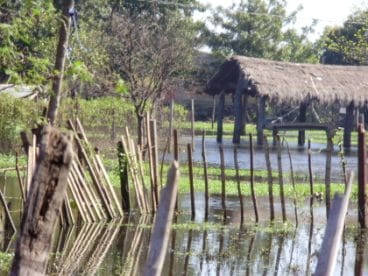
Apr 13, 2016 | Focolare Worldwide, Senza categoria
 “Scholars estimate that from 3000 BC, populations from the Southeast Asian continent arrived here. Among them were also the Guaranì people, composed of many ethnic groups that through the centuries spread to the Caribbean up to the southernmost tip of the continent,” explained Diana Durán, a Paraguayan sociologist and scholar of the aborigines of America. The meeting with a small community of the Avà Guaranì and Mbya ethnic groups came about two years ago, when a big flood of the Paraguay river forced the indigenous group of 33 families (115 members) to abandon the unsteady settlement on the banks of the river where they used to live by gathering wastes from the dumpsite nearby. “At the start we tried to help them with clothing, food, medicine, and healthcare, like the hospitalisation of a diabetic patient, intervening with one of them who had gunshot wounds, renting mobile toilettes when they were sent away to a desert area, or when, after a storm we collected tents and drinking water… and yet we saw that these actions were still insufficient. They needed a piece of land, that could give them shelter and security.“ After a long search, a suitable lot was found: 5.5 hectares at 4.5 km from the city of Ita, with a school and medical dispensary close by. All was surrounded by greens and above all, with the possibility to cultivate a community orchard for their self-support and the space to build a facility for educational courses. The challenge now is to find the finances to buy the land. “We knocked on many doors – Diana recounts. A qualified person helped us to obtain the juridical status as an Indigenous Community, so they would be entitled ownership of the property. Furthermore, a friend of the Mennonite Community offered to advance the payment of the land, which seemed impossible for us to do. We undertook, with our Avà friends, to pay back the money by instalment.” “God has looked on us with special love», the head of the community, Bernardo Benítez, said. It was a God who they regard as the “First and Foremost God,” whose main command is mutual love. He is present in the daily acts and gave this land, a sacred place to protect and where we can build fraternal relationships. “Standing by the Yary Mirì community also means suffering – Dian affirmed – due to the discrimination they suffer because of ancestral prejudices, and the misery they live in. But it is a joy to acknowledge and share the community and solidarity values they have conserved through the centuries, besides the love and trust that has been established between us and them. Today we are not alone but have the support of many friends, two associations linked to the Focolare (Unipar and Yvy Porà) that support the development of the community orchard), two bishops, some officers from financial institutions, two Mennonite Christians and the Indigeneous Pastoral. We obtained four scholarships in Educational Sciences for their leader and three youths. They themselves chose that faculty ‘because our people need education,’ they said.” “I am now writing a book on the history of their community – Diana Durán concluded – not only as a denunciation and to give a voice to those who have no say, but as an obligation to them for what they have suffered and what we owe to them. I consider it a step towards universal brotherhood, our Ideal.”
“Scholars estimate that from 3000 BC, populations from the Southeast Asian continent arrived here. Among them were also the Guaranì people, composed of many ethnic groups that through the centuries spread to the Caribbean up to the southernmost tip of the continent,” explained Diana Durán, a Paraguayan sociologist and scholar of the aborigines of America. The meeting with a small community of the Avà Guaranì and Mbya ethnic groups came about two years ago, when a big flood of the Paraguay river forced the indigenous group of 33 families (115 members) to abandon the unsteady settlement on the banks of the river where they used to live by gathering wastes from the dumpsite nearby. “At the start we tried to help them with clothing, food, medicine, and healthcare, like the hospitalisation of a diabetic patient, intervening with one of them who had gunshot wounds, renting mobile toilettes when they were sent away to a desert area, or when, after a storm we collected tents and drinking water… and yet we saw that these actions were still insufficient. They needed a piece of land, that could give them shelter and security.“ After a long search, a suitable lot was found: 5.5 hectares at 4.5 km from the city of Ita, with a school and medical dispensary close by. All was surrounded by greens and above all, with the possibility to cultivate a community orchard for their self-support and the space to build a facility for educational courses. The challenge now is to find the finances to buy the land. “We knocked on many doors – Diana recounts. A qualified person helped us to obtain the juridical status as an Indigenous Community, so they would be entitled ownership of the property. Furthermore, a friend of the Mennonite Community offered to advance the payment of the land, which seemed impossible for us to do. We undertook, with our Avà friends, to pay back the money by instalment.” “God has looked on us with special love», the head of the community, Bernardo Benítez, said. It was a God who they regard as the “First and Foremost God,” whose main command is mutual love. He is present in the daily acts and gave this land, a sacred place to protect and where we can build fraternal relationships. “Standing by the Yary Mirì community also means suffering – Dian affirmed – due to the discrimination they suffer because of ancestral prejudices, and the misery they live in. But it is a joy to acknowledge and share the community and solidarity values they have conserved through the centuries, besides the love and trust that has been established between us and them. Today we are not alone but have the support of many friends, two associations linked to the Focolare (Unipar and Yvy Porà) that support the development of the community orchard), two bishops, some officers from financial institutions, two Mennonite Christians and the Indigeneous Pastoral. We obtained four scholarships in Educational Sciences for their leader and three youths. They themselves chose that faculty ‘because our people need education,’ they said.” “I am now writing a book on the history of their community – Diana Durán concluded – not only as a denunciation and to give a voice to those who have no say, but as an obligation to them for what they have suffered and what we owe to them. I consider it a step towards universal brotherhood, our Ideal.”
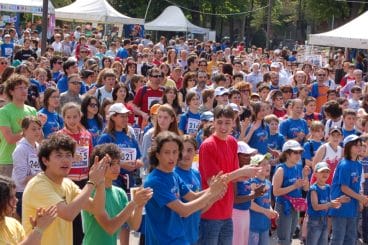
Apr 8, 2016 | Focolare Worldwide, Senza categoria
https://www.youtube.com/watch?v=fmnzghp0ghg&feature=youtu.be This year, the annual event promoted by the youth of the Focolare, which aims to involve the greatest number of people and institutions in the journey towards peace, will be centered in Quito, Ecuador. Intercultural dialogue will be the theme of the youth meeting to be held at the so-called “Other end of the world,” where one foot can be set on the aurora borealis hemisphere and the other on the austral hemisphere. Days of dialogue will ensue among youth of different cultures, along with working and sharing groups, and community tourism surrounded by verdant nature. All the information on the Ecuador programme can be found on www.mundounido2016.com. “Link Cultures – un camino para la paz” is the title that all the fraternal initiatives will have in common, to be held simultaneously throughout the world, uniting generations and cultures in a sole workshop, and can be traced through the hashtag #4peace. 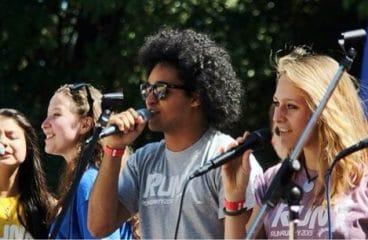 Some historical data. May ’95, the Genfest – a big world event of the Youth for a United World – ended with the launching of the United World Week (UWW): to contribute to the building of peaceful relationships of coexistence among different cultures and peoples, while respecting the identity of each community. A proposal to the public or private, national and international institutions, to highlight and uphold the initiatives that promote unity at every level, the UWW is an integral part of the United World Project. Twenty years after that historic event: a multitude of initiatives of the youth, adolescents and adults, were launched in these editions of the UWW that progressively became known to the general public, the mass media, and institutions worldwide. At all points of the planet, people were strongly attracted to the aim of convincing the world that “this is the time for brotherhood.” In 2010, a global link-up from Hungary paved the way to the UWW. In the 2011 edition the global streaming instead started from the small town of Sassello (Italy), hometown of Chiara Luce Badano, a young member of the Focolare who died in 1990 and was beatified in 2010. The UWW of 2012 preceded the Genfest held in Budapest (12,000 youth in the Sports Arena and 500,000 in a live streaming through the social networks). In 2013 the event was broadcasted from Jerusalem: 120 youth of 25 countries, Muslims, Christians and Jews, lived a strong experience of fraternity, which became a lifelong action plan for the country’s future. The “focus” of the United World Week 2014 was Nairobi, with the reciprocity construction site, “Sharing with Africa,” and the UWW 2015 entitled “Fabric, Flavour, Festival – discovering fraternity” that developed the theme of dialogue at all latitudes. The central event was enlivened by the Youth for a United World of Mumbay, India with the youth of the Hindu Shanti Ashram movement, an ulterior sign of how these events unite different peoples and religions.
Some historical data. May ’95, the Genfest – a big world event of the Youth for a United World – ended with the launching of the United World Week (UWW): to contribute to the building of peaceful relationships of coexistence among different cultures and peoples, while respecting the identity of each community. A proposal to the public or private, national and international institutions, to highlight and uphold the initiatives that promote unity at every level, the UWW is an integral part of the United World Project. Twenty years after that historic event: a multitude of initiatives of the youth, adolescents and adults, were launched in these editions of the UWW that progressively became known to the general public, the mass media, and institutions worldwide. At all points of the planet, people were strongly attracted to the aim of convincing the world that “this is the time for brotherhood.” In 2010, a global link-up from Hungary paved the way to the UWW. In the 2011 edition the global streaming instead started from the small town of Sassello (Italy), hometown of Chiara Luce Badano, a young member of the Focolare who died in 1990 and was beatified in 2010. The UWW of 2012 preceded the Genfest held in Budapest (12,000 youth in the Sports Arena and 500,000 in a live streaming through the social networks). In 2013 the event was broadcasted from Jerusalem: 120 youth of 25 countries, Muslims, Christians and Jews, lived a strong experience of fraternity, which became a lifelong action plan for the country’s future. The “focus” of the United World Week 2014 was Nairobi, with the reciprocity construction site, “Sharing with Africa,” and the UWW 2015 entitled “Fabric, Flavour, Festival – discovering fraternity” that developed the theme of dialogue at all latitudes. The central event was enlivened by the Youth for a United World of Mumbay, India with the youth of the Hindu Shanti Ashram movement, an ulterior sign of how these events unite different peoples and religions.  Run4Unity – Another novelty for this year is the involvement of the children: the world sports event Run4Unity, a relay race for peace which in the previous editions saw the participation of thousands of adolescents, from now on will be held annually as part of the United World Week. Run4Unity 2016 will take place on 8 May. The Youth for a United World hope that this international and travelling expo, now on its 20th year, will be recognised by the UN. The initiatives to be carried out throughout the year, and on which the United World Week will spotlight, are contained in the United World Project platform.
Run4Unity – Another novelty for this year is the involvement of the children: the world sports event Run4Unity, a relay race for peace which in the previous editions saw the participation of thousands of adolescents, from now on will be held annually as part of the United World Week. Run4Unity 2016 will take place on 8 May. The Youth for a United World hope that this international and travelling expo, now on its 20th year, will be recognised by the UN. The initiatives to be carried out throughout the year, and on which the United World Week will spotlight, are contained in the United World Project platform.

 “Although the challenges are many that the Caribbean country has before it, it seemed to me that the Economy of Communion (EoC) was just made for Cuba” said United States EoC business owner John Mundell while speaking at the conclusion of an event on April 29, 2016 in Havana. There were about thirty people including representatives of local cuenta propismo (self employment) training groups, members of discussion teams examining new socio-economic proposals, entrepreneurs, accountants, as well as people with a general interest in the topic. In addition to the aforementioned business owner from Indianapolis and member of the EoC International Commission, there were also representatives from Italy: Gaetano Giunta and Steni di Piazza from the MECC (Microcredito per L’Economia civile e di comunione) , Francesco Tortorella and Francesco Marini of the Projects Sector of Action for a United World (AMU). In his opening address, Apostolic Nuncio, Archbishop Giorgio Lingua recalled the invitation Pope Francis extended to the youth during his visit to the island in September 2015: “Live ‘social friendship’ so that you’ll be able to discern together how to implement it and help others to live for the common good.” “Very appropriate words,” thought Paola Montetta who was one of the organizers of the event, “given that we had Christians and non-believers who had Socialist training, and all of us moved by the desire to live a lifestyle of communion.” After an overview of the Civil Economy, the Economy of Communion (EoC) was presented that included a description of the novelties and challenges it poses, placing the human person at the centre of economic action, particularly the vulnerable and the needy. The experiences of the entrepreneurs from the EoC showed that “despite the pressures, it is possible to pursue a lifestyle of communion in business, respecting the productivity and the environment, while, at the same time, you become generators of reciprocity and communion inside and outside the business.”
“Although the challenges are many that the Caribbean country has before it, it seemed to me that the Economy of Communion (EoC) was just made for Cuba” said United States EoC business owner John Mundell while speaking at the conclusion of an event on April 29, 2016 in Havana. There were about thirty people including representatives of local cuenta propismo (self employment) training groups, members of discussion teams examining new socio-economic proposals, entrepreneurs, accountants, as well as people with a general interest in the topic. In addition to the aforementioned business owner from Indianapolis and member of the EoC International Commission, there were also representatives from Italy: Gaetano Giunta and Steni di Piazza from the MECC (Microcredito per L’Economia civile e di comunione) , Francesco Tortorella and Francesco Marini of the Projects Sector of Action for a United World (AMU). In his opening address, Apostolic Nuncio, Archbishop Giorgio Lingua recalled the invitation Pope Francis extended to the youth during his visit to the island in September 2015: “Live ‘social friendship’ so that you’ll be able to discern together how to implement it and help others to live for the common good.” “Very appropriate words,” thought Paola Montetta who was one of the organizers of the event, “given that we had Christians and non-believers who had Socialist training, and all of us moved by the desire to live a lifestyle of communion.” After an overview of the Civil Economy, the Economy of Communion (EoC) was presented that included a description of the novelties and challenges it poses, placing the human person at the centre of economic action, particularly the vulnerable and the needy. The experiences of the entrepreneurs from the EoC showed that “despite the pressures, it is possible to pursue a lifestyle of communion in business, respecting the productivity and the environment, while, at the same time, you become generators of reciprocity and communion inside and outside the business.”  These are certainly important topics especially in view of promoting possible alternatives to the offensive from capitalism, particularly given the current economic situation in Cuba. The experiences of MECC and AMU in the field of social projects which it promotes around the world, have opened new horizons that make room for important and fruitful dialogue. “The meeting turned out as was hoped: as a multiplier of reciprocity and experiences of communion and as an incubator for ideas and proposals,” said Paolo Monetta. And John Mundell: “During the return trip I was on a plane with a lot of American business people, individually invited for “People To People Travel” – all of them intent on discussing business opportunities that are opening in Cuba. If I’m on a plane filled with American capitalists, I said to myself, then this time the EoC is moving at just the right moment!” The next appointment will be November 2016: “With the goal of involving those who want to create synergies with us in favor of communion and in view of a more just and united world.”
These are certainly important topics especially in view of promoting possible alternatives to the offensive from capitalism, particularly given the current economic situation in Cuba. The experiences of MECC and AMU in the field of social projects which it promotes around the world, have opened new horizons that make room for important and fruitful dialogue. “The meeting turned out as was hoped: as a multiplier of reciprocity and experiences of communion and as an incubator for ideas and proposals,” said Paolo Monetta. And John Mundell: “During the return trip I was on a plane with a lot of American business people, individually invited for “People To People Travel” – all of them intent on discussing business opportunities that are opening in Cuba. If I’m on a plane filled with American capitalists, I said to myself, then this time the EoC is moving at just the right moment!” The next appointment will be November 2016: “With the goal of involving those who want to create synergies with us in favor of communion and in view of a more just and united world.” 





 Salta: one of the more beautiful provinces of
Salta: one of the more beautiful provinces of 

